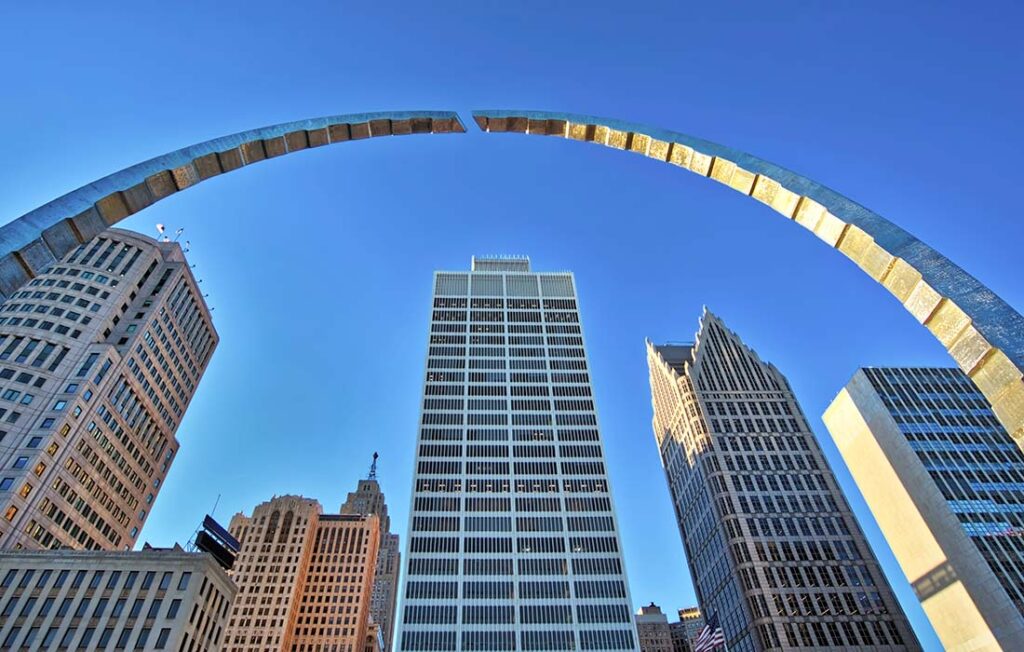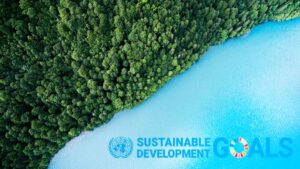Everyone has the right to clean water, fresh air, and healthy neighborhoods. Unfortunately, those rights are often denied, especially to those living in low-income neighborhoods or communities of color. Detroiters Working for Environmental Justice (DWEJ) is one of many organizations across the country working to fight these injustices.
Founded in 1991 and dedicated to helping underrepresented populations in Detroit gain access to resources and knowledge that lead to long-term, healthy solutions, DWEJ was built on the idea that every community has a voice that needs to be heard. Over the past five or so years, however, the organization has been caught in a cycle of following the money—find funding and create a program to fit it—rather than using the community to help figure out the problems and then finding money to support a solution. This approach has pulled their work out of Detroit and into cities like Grand Rapids and Flint.
After nearly a year in her new role, that’s all changing now.
New Leadership, New Vision
In June 2021, Laprisha Daniels was brought on as DWEJ’s new Executive Director and tasked with re-centering DWEJ around broad-based grassroots community efforts in Detroit. A public health social worker with a Masters of Public Health and Masters of Social Work from the University of Michigan, Daniels believes in the power of community and has felt the responsibility to take care of the Earth and its people from a very young age.
The focus of Daniels’ education and work has always been community-based participatory projects meant to elevate voices of the community and reduce health disparities in urban areas. Using her experiences gained working in a variety of public health roles for organizations like Johns Hopkins and the U.S. Department of Health, she is making DWEJ a prominent fixture in Detroit communities once again, providing residents with a voice able to affect positive change.
“We are looking to get back to the original route of being more grassroots and really focusing on the needs in the community and how we best meet those needs,” said Daniels. “We want the community to identify the problem as well as the solutions and help evaluate whether those solutions are working rather than just following the dollar.”
Shifting the Focus
There are myriad ways Daniels works with the community, researchers, policymakers, and others to ensure Detroit is “a healthy, clean, safe place for people to live, learn, work, play, and pray.” Providing access between community members and outside organizations, government agencies, and politicians is a priority for her.
“We want to take what the community is experiencing and elevate it to the folks who need to know about it. This way, the story doesn’t just stay in the community and become a complaint, rather it’s something that we can look at and figure out the action that needs to be taken. We can then support folks activating around issues they have identified in their community.”
In addition to working with the community, DWEJ partners with other environmental justice organizations across the city, state, and country, and the organization’s employees sit on a variety of boards. In doing this, they bring together groups that often work in silos and provide a space for collaborative learning for everyone to better understand what work is being done, what the gaps are, and how those gaps can be filled. It’s also a wonderful way for DWEJ to connect organizations with communities so they can work together.
Daniels also hopes to reinstate the environmental justice bus tours that DWEJ used to offer during the mid to late nineties. The tours brought scholars, politicians, scientists, activists, funders, and others through Detroit neighborhoods while a speaker explained the environmental injustices the communities were experiencing. Oftentimes, there was also a community member who provided a first-person account of how their environment directly affected their family; for example, how the air quality impacted their child’s asthma or how the smell coming from the nearby incinerator was having a negative effect.
“The board was concerned about me being overwhelmed when I first started, but I have two degrees and love problem-solving. This is why I gravitated toward public health and social work. We tackle really big problems. So yeah, this is a big problem, let’s tackle it. I have a blank piece of paper, a bunch of pens and markers, and glitter so I can create something awesome here.”
Glitter or no, Daniels sees a sparkling opportunity to bring people together in meaningful ways to make a difference and engage the community.
Getting Involved and Changing the Narrative
“There’s so much energy right now around justice, period. Folks are focused on social justice, environmental justice, and many of the ‘-isms’ that are in place, chipping away at people’s health and well-being. A lot of folks want someone to say, okay, here’s the map. We know what we need and here’s how we get there together.”
One of the ways Daniels recommends getting involved is by figuring out your realm of influence and using it to make your voice heard. Daniels’ teenage niece is very justice-focused and engaged her household in moving forward her environmental passions by having her family start composting—that’s six people doing something positive for the environment because of one person’s idea.
“Whatever platform, whatever realm of influence you have, use it to make a difference. Use it to add other folks’ voices and figure out what you can do to make yours heard.”
As for DWEJ, the organization continues to build out programs that give communities a voice. In addition to the policy work and programs they are currently working on, Daniels hopes to have a larger presence and more visibility within Detroit communities and to become the go-to for residents anytime there is an environmental justice issue happening.
“We’re here to collaborate with communities so that they can fight for their own right to safety and health that will last for future generations.”



